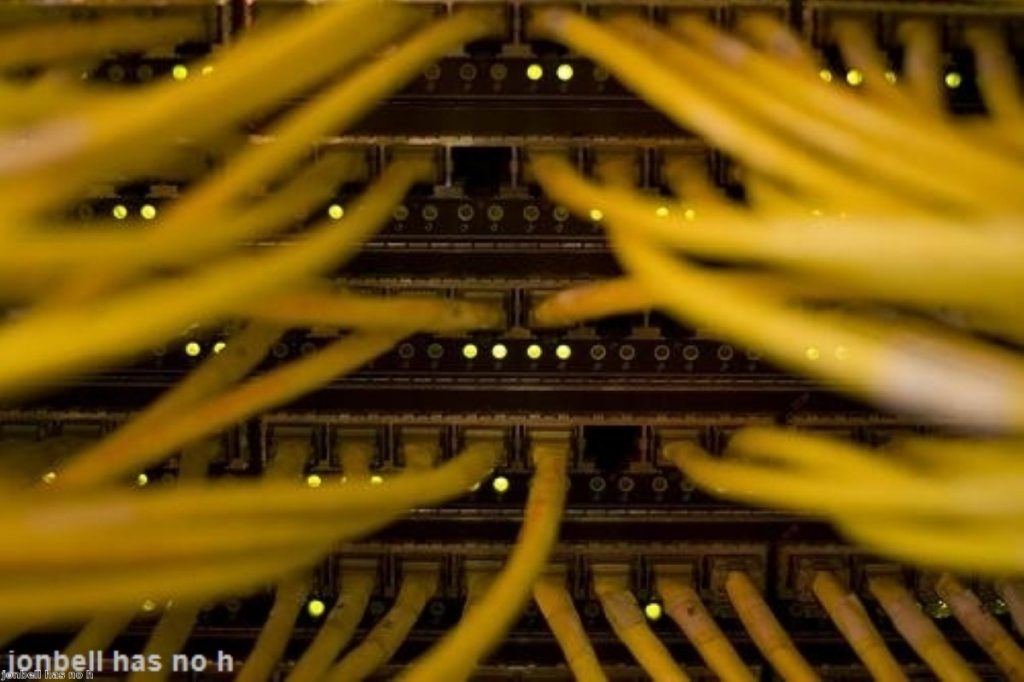Hague lashes out at ‘baseless’ Prism suspicions
William Hague insisted the government had stuck to the letter of the law in its access to the US surveillance system known asPrism today, as he sought to reassure voters about the regulations surrounding internet activity.
The foreign secretary branded accusations that the UK government had effectively set up a covert snoopers' charter "baseless" and insisted the UK's system of checks and balances was one of the strongest in the world.
"Every interception requires a warrant," Hague told the Commons.
He explained interception authorisations are "proportioned and carefully targeted… considerations of privacy are at the forefront of our minds" and added that the UK has "one of the strongest system of checks and balances and parliament accountability anywhere in the world.


"This accusation is baseless," Hague said.
"Any data obtained by us from us is subject to statutory UK controls and safeguards, including the Human Rights Act (HRA) and the Regulation of Investigatory Powers (Ripa) Act.
"Our agencies practice and uphold UK law at all times when dealing with information from outside the UK."
Hague's forcefully delivered statement suggested the government was keen to stamp on the growing row about the use of surveillance data by US authorities.
However, elements of his statement raised more questions than they answered.
Under British law, the legal safeguards around intercepts would only apply to UK requests for the US to carry out surveillance activity on its behalf.
But if, as is suspected, the UK was simply given to access to data already obtained by US authorities, it could fall outside of current legal arrangements.
Yesterday Hague said it was "fanciful" and "nonsense" to presume Britain had requested information about UK web activity from their American counterparts, but CCHQ has had access to the database since at least 2010 and once compiled 197 intelligence dossiers from Prism in a single year.
The foreign secretary said he could give no assurances about detailed questions because of national security.
He also made it clear that he had not complained to the US about their secret tracking of UK citizens' private online communications, including emails, social media messages and photos.
The US Foreign Intelligence Service Act treats all non-US citizens as possible enemy suspects not entitled to legal protection.
The intelligence and security committee (ISC) has already received information from GCHQ and will provide a report tomorrow, but it takes evidence in private and very rarely makes public complaints about intelligence work.
Asked whether the system amounted to a 'secret snoopers' charter', business secretary Vince Cable said: "It may well have been."
He told Sky News: "One [issue] is that the Americans have developed this very sophisticated Prism system, which enables them to get access to data in other countries, with or without our knowledge.
"And there is a separate issue about whether GCHQ were involved in some collaborative exercise."
It emerged yesterday that the leak was the result of whistleblowing by a young US technical analyst for the CIA called Edward Snowden.
Snowden fled to Hong Kong before the story was broken by the Guardian and he is now following developments from a hotel room which he has barely left for several weeks, out of fear of attack.
"I understand that I will be made to suffer for my actions," he told the newspaper.
"I will be satisfied if the federation of secret law, unequal pardon and irresistible executive powers that rule the world that I love are revealed even for an instant.
"I don't want public attention because I don't want the story to be about me. I want it to be about what the US government is doing.
"My sole motive is to inform the public as to that which is done in their name and that which is done against them."
The communications data bill – dubbed the snoopers' charter by the press – was discarded by the coalition earlier this year following action from Nick Clegg, although there were calls for it to be revived in the wake of the Woolwich killing.
The system which would have been developed in the wake of the Act would have been extremely similar to Prism and would in all likelihood have been based on it, given that it was the closest relevant system to which British intelligence officials already had access.

